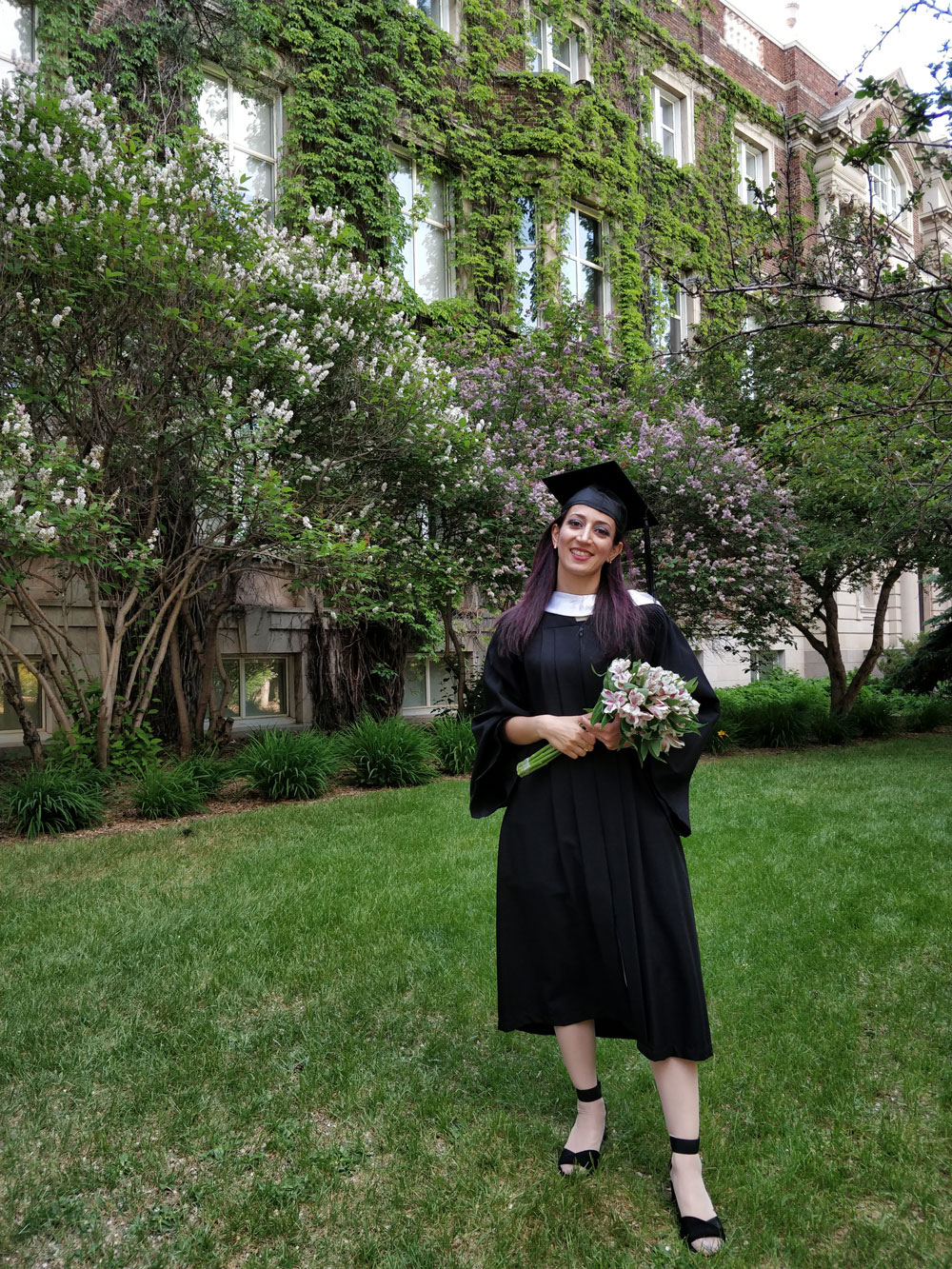
Sociology PhD student Rezvaneh Erfani Hossein Pour
As climate change threatens the existence of life as we know it on earth, the response to this deepening global crisis has been tepid at best, geographically scattered and highly susceptible to the vagaries of politics and public interest.
One of the issues, says Rezvaneh Erfani Hossein Pour, a PhD student in Sociology in the Faculty of Arts, is that environmentalism as a concept has been shaped by western colonial definitions that fail to take into account cultural differences in other areas of the world, namely the Middle East, where climate change is more likely to wreak havoc in the first half of the 21st century. As a result, there is insufficient knowledge about emerging environmental movements in these areas, complicating the progression of a unified and global plan of action.
In terms of environmentalism, one size does not fit all.
Still in its early stages, Erfani Hossein Pour's research promises to shed light on this little-known facet of the Middle East - with local benefits.
"My research will provide Canadian scholars with first-hand data on the specificities of environmental research and policy making in the Middle East," she says, adding that it will also contribute to international environmental policy in Canada regarding the significance of Canada's unique relationship and engagement with Middle Eastern countries.
Erfani Hossein Pour has deepened her study of environmentalism in the Middle East since coming to Canada from Iran as a master's student. Now in the 2nd year of her PhD, the Vanier Canada Scholarship recipient is researching ways to address this gap in knowledge, and why filling it matters.
"When we look at the whole issue of environmental justice from a post-colonial point of view, you might question the very definitions that shape our understanding of the issue," she says. "Most of the literature that we have comes from the western perspective, and these concepts are based on an understanding that the environment is something that should be exploited - a concept which may not apply to local communities and local knowledges."
Specifically, Erfani Hossein Pour is looking at how environmental activism is defined and perceived in three countries: Egypt, Turkey and Qatar. She is also analyzing the "hidden functions of environmentalism" and its possible role in the expansion of democracy and human rights in the Middle East.
The western perspective on the environment is largely defined by secular interests such as politics, economics and resource management, but in the Middle East, religion plays a more dominant role. Erfani Hossein Pour believes that western democracies need to be more inclusive about the way policy is made, perceived and implemented in other parts in the world, citing Turkey, Egypt and Qatar as examples. Predominately Muslim countries, it is imperative that the language of Islamic law, in particular the laws which govern the distribution of water, be understood.
"In Islam, water is sacred," she explains. "A big portion of my research will be about cultural and religious understandings and about how they shape relationships with water and nature in general, and how this in turn shapes the politics. We should be more tolerant and welcome more versions of environmentalism. It's important for the scholarship, and for policy development."
Another aspect of Erfani Hossein Pour's research is gauging how environmental activists can potentially help other human rights activists in their quest for democracy.
"When we look at totalitarian countries, they prefer Non-Governmental Organizations (NGO's) to talk about water rather than human rights or women or other things," she says. "This is an opportunity for environmental activists to build that language as they talk to their governments and for other activists to use this language to pursue their own goals."
Erfani Hossein Pour began working in the area of environmental communication when she was a MA student at the University of Tehran. She continued her studies - focusing more on environmental justice - after joining the Department of Sociology under the supervision of Ken Caine. As a doctoral student, her research necessitates frequent travel to the Middle East, which she says was hampered early on by the long delays she and other Iranian students faced obtaining study permits and permanent residency status in Canada, dating back as far as 2015.
Now a permanent resident, Erfani Hossein Pour says the delays caused her and other students across Canada considerable personal and financial stress as well as lost opportunities for institutional and national scholarships. As an international student, however, she was eligible for the prestigious Vanier Canada Graduate Scholarship, which she awarded in 2018. Launched a decade ago, the Vanier Scholarship program is intended to bolster Canada's ability to attract and retain world-class doctoral students like Erfani Hossein Pour.
In spite of these difficulties, however, Erfani Hossein Pour is excited about the research opportunities the Vanier scholarship affords, and plans to stay here with her husband after she completes her degree.
"I'm still in a state of disbelief," she says. "I'm so grateful to hold a Vanier."